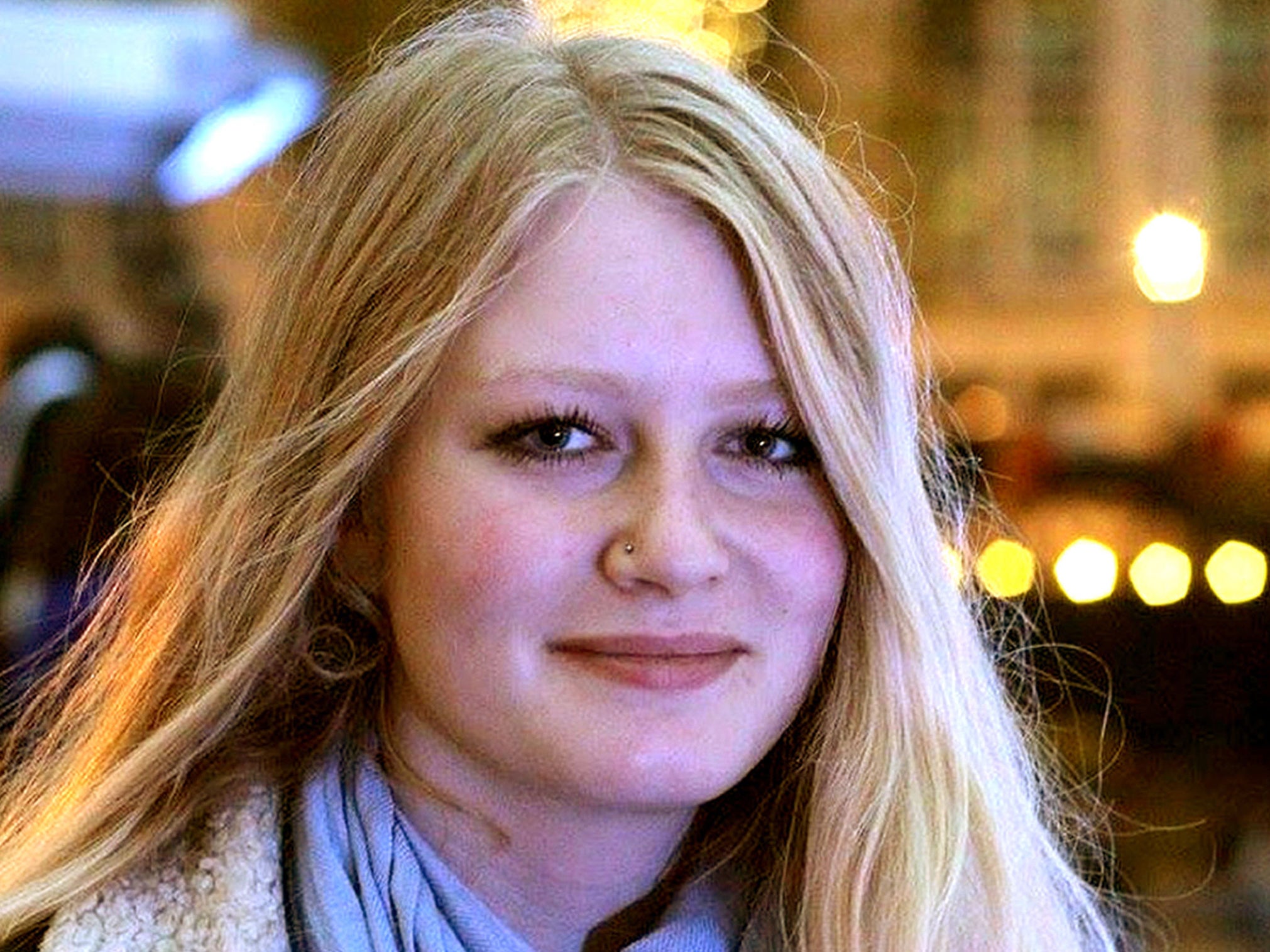Gaia Pope: Teenager's family appeal for information on anniversary of disappearance
Nineteen-year-old body was discovered in undergrowth on clifftop

The family of a teenager who was found dead 11 days after going missing has appealed for information on the anniversary of her disappearance.
Gaia Pope, a 19-year-old from Swanage, was reported missing from her home on 7 November last year and her body was discovered almost two weeks later in undergrowth on a nearby clifftop.
An opening inquest later heard Ms Pope, who suffered from severe epilepsy, died from hypothermia.
Dorset Police is being investigated over the way it handled a previous rape allegation and her disappearance.
Her family complained that police failed to act on a claim made by Gaia two years before her death. The incident left the epileptic teenager with symptoms of post-traumatic stress disorder.
On the first anniversary of her last being seen alive, her family has urged members of the public to come forward with any relevant information.
They also launched an art project to remember her and to highlight the crisis in service provision for rape survivors and young people who have difficulties with their mental health.
Ms Pope's mother, Natasha, said: “This year has been more painful than words can say. Sometimes I can't believe I have survived it, but with my every breath I love and demand justice for my daughter. Since the Me Too [movement], we have seen a rising movement for the rights of women and girls. Change is coming.”
Her cousin, Marienna Pope-Weidemann, said: “When she was missing, it was the support and dedication from the public that kept us going. You gave us hope that we would find Gaia. A year after her death, we must call on you again to help us find justice for her.
“We can't do this without you. If you know anything that might aid the investigation into Gaia's rape case or the missing persons investigation and help us learn the truth, please come forward; not just for Gaia's sake, but for the sake of anyone else who might be at risk.”
The family have organised a creative project titled #ArtForGaia in an attempt to demonstrate she will not be forgotten despite the inquest having been postponed. They also hope it will create a space for people affected by sexual violence and mental health issues to share their experiences through creative work.
Deborah Coles, director of campaigning group Inquest, said: “Already one year on from Gaia’s disappearance, it is important that her family see a prompt and robust investigation. There has never been greater disquiet about victims of sexual violence being failed by statutory agencies. There is a clear link between the trauma of rape and mental ill health. The longer the delay in identifying any systemic failings, the greater the risk of more young women like Gaia dying.”
Emily Fields, of radical feminist direct action group Sisters Uncut, said: “Gaia's story shows the devastating impact that being poorly treated by the criminal justice system can have after sexual violence. Survivors need support, not suspicion. That's why we're fighting data gathering policies that further traumatise those reporting abuse.”
Harriet Wistrich, award-winning civil rights lawyer and co-founder of the Centre for Women's Justice who is representing the family, said: “Nothing will dull the pain for those who loved her on the first anniversary of Gaia’s death, but the Justice for Gaia campaign represents their hope that something good can come from this, shining a light on failures by the police and demanding better from the police in the investigation of crimes of sexual violence.”
The inquest into Ms Pope's death was postponed while the Independent Office for Police Conduct probe Dorset Police's response – both to her disappearance in November 2017 and her prior rape case.
Ms Pope's family have previously said the teenager became increasingly “disturbed” by the knowledge that the perpetrator had targeted others, and could soon be freed from prison under early release.
Natasha Pope added: “There is no doubt in my mind: this is what drove Gaia up the hill that night. I am relieved that at last, it will be properly investigated and I am resolved to see positive change. It was not her intention but in a way, my daughter gave her life to shine a light on all this.”
Her father, Richard Sutherland, said the family needed to know if more could have been done to make his family feel safe and protect the public.
“Nothing can bring her back to us but a thorough, transparent and unbiased investigation will help us move forwards,” he added. “We need to know the truth.”
The family have now issued an appeal for artwork from Gaia's friends, any of those who were involved in the search for her, and the public at large.
Bookmark popover
Removed from bookmarks